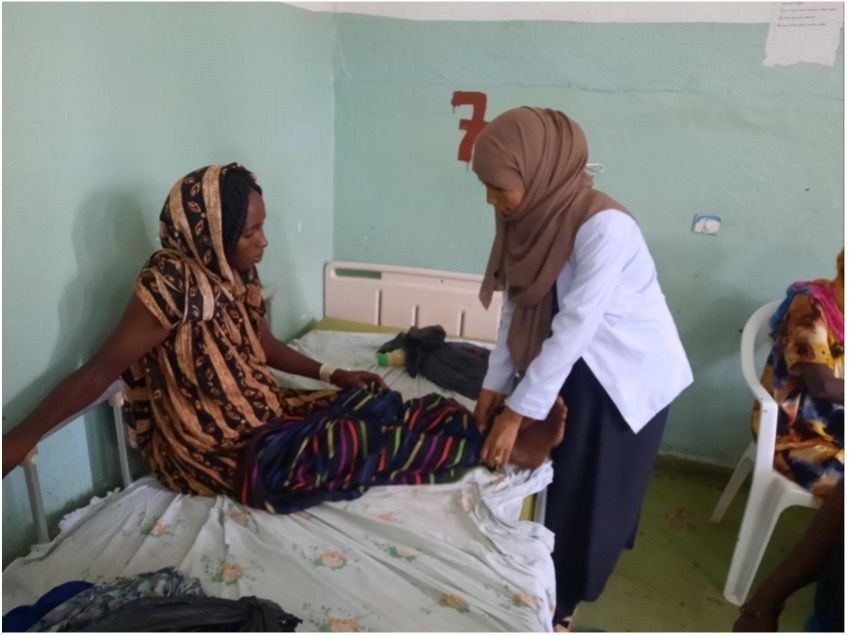"I traveled 200km with my bleeding daughter"
Tuesday, January 16, 2024

Mehabi, a 23-year-old mother of three, was referred to Dubti Hospital from a local health center while pregnant with her fourth child. Despite living 200km away, Mehabi and her mother made the arduous journey by foot and car to Dubti hospital, enduring a three-day trek to reach the center.
According to Mehabi’s mother, Mehabi first experienced bleeding during her pregnancy while doing a house chore. For which, they took her to the local health center, where professionals reassured her and sent her back home. However, when she had another episode of bleeding two days later, she was informed that she needed to be scanned by a computer (ultrasound). Hence, she was referred to Dubti Hospital, which was the closest place to get this scan.
Mehabi’s mother was relieved as they arrived at Dubti Hospital without any harm to her daughter and her daughter’s pregnancy. However, she expressed her concern about the quality of the health center and its services, especially in rural areas where comprehensive health services are lacking and serious service interruptions occur. Despite the improved health-seeking behavior of the community, the health centers are unable to keep up and provide quality services, forcing patients to travel long distances in search of better care. Fortunately, Mehabi received good news after being scanned at Dubti Hospital and is currently awaiting delivery while under conservative management.
Mehabi's journey highlights the struggles that many women in remote areas face when seeking access to quality healthcare. In many cases, women in these areas have limited access to healthcare facilities, and those that are available may lack the necessary resources and staff to provide adequate care. This can result in delayed or inadequate treatment, which can have serious consequences for the women and their babies. Therefore, it is important that we work to address these problems by improving access to healthcare.

